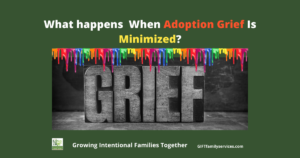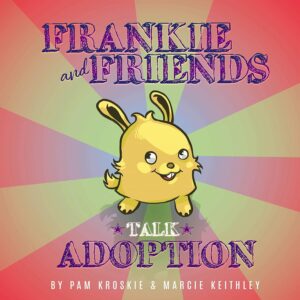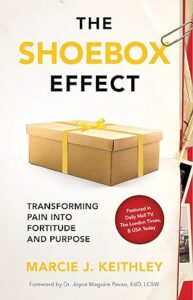 It has been said, that everyone involved in an adoption comes to it on their knees. All are buffeted by the pressures of the seven core issues in adoption. All have significant “stuff” to handle. If not addressed, things remain unresolved and unacknowledged. Challenges fester
It has been said, that everyone involved in an adoption comes to it on their knees. All are buffeted by the pressures of the seven core issues in adoption. All have significant “stuff” to handle. If not addressed, things remain unresolved and unacknowledged. Challenges fester
To counter-act this tendency, this blog frequently highlights the complexity and hard realities that are part of the adoption experience. It helps build a more complete picture, identify pathways to healing and, customize much-needed support.
We have tried to pull back the veneer of a Win/Win/Win mentality. We ask readers to look at, acknowledge, and address the hard truths, to surrender the happily-ever-after myths for the sake of the adoptees for whom adoption is meant to help.
Fractured and Tangled Relationships in Adoption
This month, we will share a poignant and eye-opening story of one adoptee: Marcie Keithley. She is our 2025 Shaping the Future Award recipient and an amazingly resilient and generous person.
To understand Marcie’s story and to be able to learn from her experiences, here are some of the facts that are important to know.
- When she was 5 years old Marcie was abandoned by her mother
- Marcie is a birth mother in reunion.
- Thirty years later she married her birth daughter’s father
- Together, they searched and found their child.
- Her daughter’s adoption was filled with challenges
- Marcie and her husband adopted their daughter back
- Their daughter continued to struggle mightily
- Marcie and her husband divorced
- Their daughter’s struggles worsened
- Marcie became guardian of some of her daughter’s children.
- At 68 Marcie learned that her father was not her birth father
(Watch or listen to Marcie tell her story in her own words.)
The cost of secrecy and lies
Pause for a moment to consider the emotional rollercoaster Marcie’s family has faced. Tally the relationship fractures, the grief and losses, the attempts to reconnect and heal. Imagine the courage it took to dare to open up to connection, to risk rejection after all of that broken trust damaged, intimacy, and rejection.
What helped Marcie cope?
Marcie is an extraordinary person who took her loss and grief and channeled it into the work [of helping others.] She immersed herself in the world of adoption. Having been blind-sided by the lack of truth in her own life, she spear-headed the efforts to open adoption records.
The impact of sharing a personal story
The more that Marcie shared her story, the better she was able to cope. Knowing the kind of support that she had sorely needed –and never received–she strove to create resources and ensure that they were available to women facing crisis pregnancies, to adoptees in search of their stories, and to birth/first mothers striving to continue life after making an adoption plan for their child.
Each adoptee’s story is unique
As, we listen to Marcie’s story, our general understanding of adoption complexity expands. We also see one glaring point: secrecy and lying are toxic and damaging. They can block genuine connection and leave adoptees floundering without the attuned, truth-based support they need. Unhealed trauma tends to reverberate through the generations. Family fracture, broken relationships, and reluctance to trust can become a family pattern as it did in Marcie’s family.
The consequences of minimizing or hiding the truth
Lies and incomplete truths prevent people from knowing themselves, the facts of their lives, and the circumstances that shaped them. This leaves them feeing unmoored and can worsen identity issues (one of the seven core issues in adoption.)
Even if they can’t prove it, often adoptees sense that information is being withheld from them. When their questions are dismissed or minimized, they can feel gaslighted. Incomplete or false information undermines the foundation on which their sense of self, their self-confidence, their judgment and intuition. Instead of feeling loved, they can feel “in the dark,” unsettled and betrayed.
The loving and healthier choice: talk about the Hard Stuff
While it may be uncomfortable and awkward to discuss the Difficult Parts, it is usually the best way to proceed. Of course, this must be done in age- appropriate increments and language. The guidance of an adoption competent coach or therapist, can help with the particularly challenging points.
Reluctance to discuss the hard parts is rooted in fear of causing discomfort
Keep in mind that the pain and challenges exist whether or not they are discussed out in the open. If the Difficult Conversations are never held, the adoptee has to figure out how to cope with the situation but without the complete facts and without the support of their parents.
Uncomfortable or awkward, these deep and brave conversations are essential to an adopted person’s mental health throughout his life. The ostrich approach doesn’t work. They need help understanding and navigating the complexities of adoption.
The Power of books for adults and children
This blog has often highlighted the benefit of books as a tool for opening essential adoption-connected conversations. Books help adults and children explore thoughts, feelings and experiences. Books provide a common vocabulary, some examples of issues and topics to be discussed, plus a variety of approaches to consider. Most importantly books can offer a third person approach. Instead of saying I feel this way. Books say this person or character feels this way. That bit of separation helps make the conversation more approachable.
Another way a book can prove useful is that either the child or the parent can grab it from the family bookshelf and suggest that they read it together. Alternatively, a parent or child can read it alone if they feel the need to sit with the material before discussing it together.
Resources
We have created a short course titled “Your Family Adoption Library: A Pathway to Vital Adoption Conversations.” It contains a lot of practical information, strategies, and insights and a list of suggested books for adults and children. The list includes two of Marcie’s books: Frankie and Friends Talk Adoption and The Shoebox Effect: Transforming Pain Into Fortitude and Purpose
Questions to ponder
- How have I prepared myself to initiate conversations about adoption?
- How have I educated myself on the seven core issues of adoption?
- How have I handled my own adoption-connected challenges?
- How robust is our family adoption library?
__________________________
-
- Call us at 1-800-653-9445
- Listen to our podcasts: Adoption Matters: Real People. Real Life. Real Talk and Essentials of Adoption Attuned Parenting
- Watch our YouTube channel
- Read Books written by our coaches
- Click to learn more about Adoption Attuned Certified coaching!
- Check out our on-demand courses.




